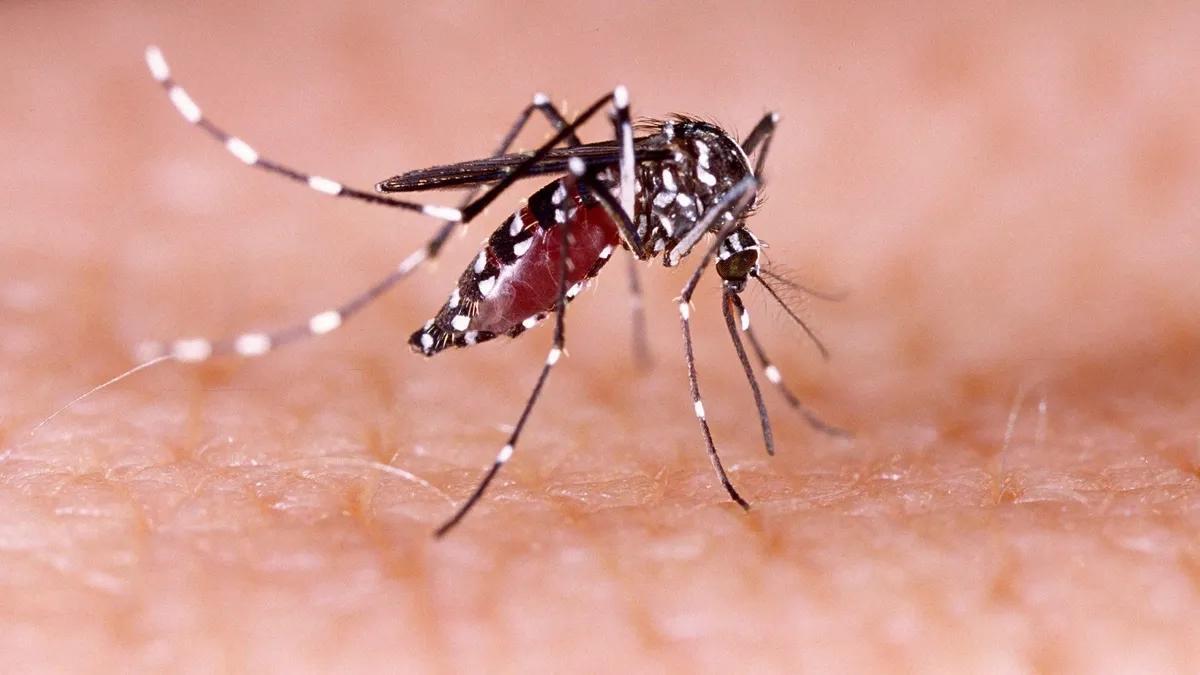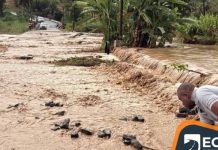Africa-Press – Cape verde. In Cape Verde, 19 public health agents roam a set of pre-defined streets in the capital, Praia, every day, equipped with special protective blue suits, masks and spray pumps to stop the dengue-carrying mosquito.
“Indoor spraying began in May. Then, there were some confirmed cases of dengue”, which have now reached 32, in the country, leading to a reinforcement “in the anti-vector fight, to prevent the spread”, explains António Veiga, one of the team members, while inspecting one of the houses being sprayed in the São Filipe neighborhood.
Cape Verde announced the resurgence of dengue on November 8, with the most serious outbreak being recorded in 2009, with 21,000 cases and six deaths, all on the island of Santiago.
Fever, headache, muscle and joint pain, along with skin inflammation, are part of the symptoms of the infection which, in the most serious cases, can progress to dengue hemorrhagic fever and, at the limit, cause death.
Cape Verde has, in recent years, highlighted its success in eradicating diseases transmitted by mosquitoes, namely malaria (also called malaria), which is still one of the main causes of death in many fragile countries, while Cape Verde Verde is finalizing, with the World Health Organization (WHO), certification as a disease-free territory.
The Minister of Health, Filomena Gonçalves, has already said that dengue cases cannot be related to the malaria eradication certificate, but, with 32 confirmed cases and many other suspects (requiring laboratory analysis), health authorities have intensified actions on the ground.
The 19 agents are subdivided into three groups and work from 08:00 to 15:00 (from 09:00 to 16:00 in Lisbon), especially in places with the most suspected cases identified.
From afar, they are reminiscent of medical personnel in the most adverse scenarios during the Covid-19 pandemic: they wear (almost) full protection suits and those carrying insecticide bottles (connected to manual sprayers) wear masks on their faces.
A group visits, on average, 100 houses per day, each for five to seven minutes.
They introduce themselves, inform all residents that they “have to leave” and the spraying begins, shooting at the interior walls of the house and plants outside, around the house.
They also carry out an inspection, looking for poorly covered tanks, cans, empty bottles or vases, any object that can store water for a long time and that, inadvertently, serves to incubate mosquitoes.
When it is not possible to drain stagnant water, small fish (gambusia or mosquito fish) or even diesel fuel are mixed in to prevent mosquitoes from breeding there, says António Veiga.
Unfinished and abandoned buildings, which proliferate throughout the Cape Verdean capital, are one of the main problems for these teams.
There are open tanks, poorly sealed septic tanks and inside the houses themselves, mosquitoes accumulate, so much so that, “whenever it is necessary to break down a door, we enter or carry out an ‘assault’ to prevent the spread of mosquitoes”, he reports.
Alongside the sprayers, on this walk through the city, some elements are responsible for informing residents about prevention measures.
Gaudêncio Barreto, a resident of São Filipe, no longer has any doubts about how “very important” it is to keep the street clean and eliminate standing water to avoid mosquitoes.
“We all have to collaborate to prevent these diseases,” he said.
Elisângelo Correia, another resident of the neighborhood, applauds the team’s work and confesses that, seeing them in action, he feels more relieved: he has had dengue symptoms for a few days and, despite having already taken a test, the result was negative. , you will repeat it to completely rule out the disease.
For More News And Analysis About Cape verde Follow Africa-Press






